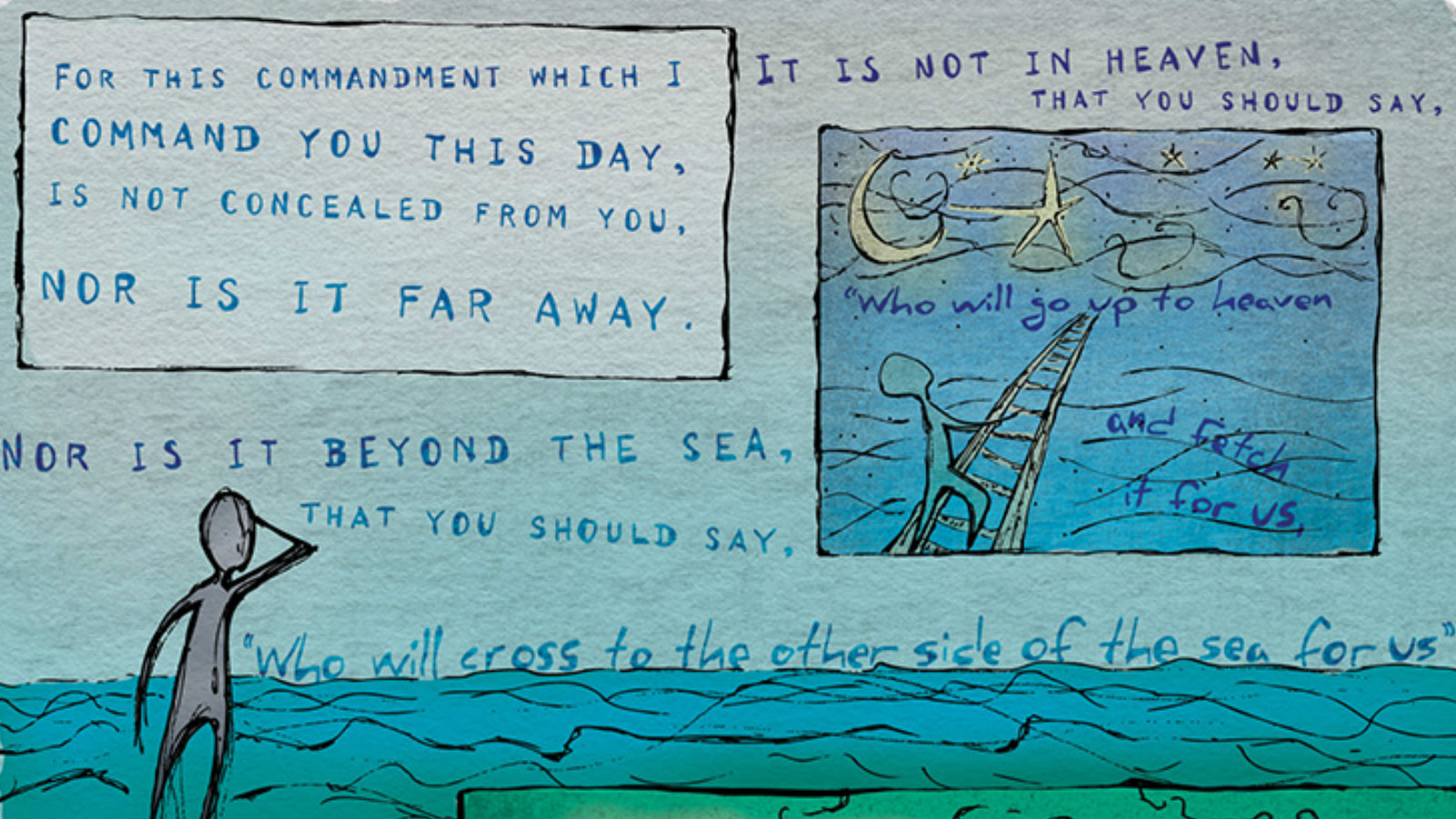Commentary on Parashat Nitzavim, Deuteronomy 29:9 - 30:20
I cannot count the number of times I have been in a conversation about how the so-called organized Jewish community can facilitate Jewish experiences that are more “relevant,” “authentic,” “meaningful” and “accessible.” With abundant diversity inherent in the Jewish communities, it is only natural that there should be an equal abundance of ideas of what Judaism should look like today and could look like moving into the future. To my mind, Jewish tradition grounded in the Torah is actually very adept and inclined to evolving. Evolution need not mean abandoning past customs and laws; to me, it means that the religious practices, and our understanding of them, grow alongside the greater culture.
Looking to understand how can Judaism can do just that, one can gain an amazing insight from a few verses in Parashat Nitzavim.
There is incredible power and depth of wisdom in understanding Torah through the lens of the words in this portion: “The matter is very near to you; it is in your mouth and in your heart to do it.” (Deut. 30:14) These words imply that the concept of Torah is perpetually relevant, authentic, meaningful and accessible. So how can this be when so much of its contents, especially some of its seemingly irrational religious requirements and prohibitions, feel so out of touch to many contemporary Jews? To gain a deeper appreciation of what I think the Torah is compelling us towards, I am reminded of a teaching from Rabbi Menachem Nahum Twersky, the Chernobyl Rebbe (Ukraine and Poland, 1730-1787), on a different Torah portion.
The Chernobyl Rebbe teaches: “the Torah is eternal and relevant in every time, because if it were not the case then it would just be, God forbid, stories from a time past. If this were so, why would it be referred to as “Torah” which is an expression of teaching (hora’ah)?” In other words, the Torah is eternal because of its adaptability rather than because of its unchanging nature. The continuity of Jewish wisdom is not bound by the past, but its continued chain of transmission relies on each previous generation preparing the next generation to maintain a relationship with Torah that is “very near to you…in your mouth and in your heart…”
Our Sages of Blessed Memory interpreted the Torah understanding the concept that “Torah speaks with human language.” This has been used to contextualize, for example, the seeming contradiction that God has no form or body and yet the Torah says that God took the Children of Israel out of servitude “with an outstretched arm.” Likewise, how we understand the application of Torah in the lives of contemporary Jews needs to be viewed through the greater context of the contemporary world and the contemporary state of Jewish culture.
It is not enough to look towards the past to understand how to maintain a relevant and authentic Judaism, an eternal Torah so to speak. We also must keep an eye toward the future and ask ourselves if we are employing a language and a worldview consistent with the idea of Torah being near to our mouths and hearts. A language and a worldview will empower future generations to continue the evolutionary and adaptive nature of Jewish wisdom, culture and religion.



